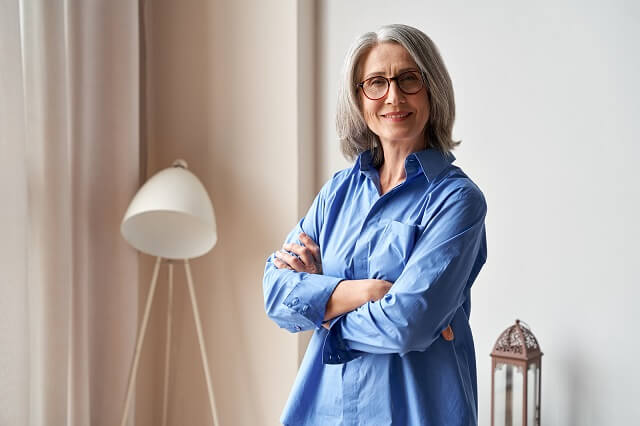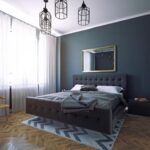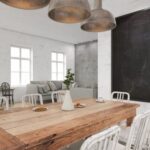What is my home decor style called? When it comes to interior design, finding your personal style can be a fun and fulfilling journey. From eclectic to Scandinavian, there are various home decor styles that cater to different tastes and preferences. Understanding the different home decor styles can help you create a space that reflects your personality and suits your lifestyle.
One popular home decor style is the eclectic style, which involves blending different design elements from various periods and styles. This results in a unique and vibrant space filled with character and personality. Another option is the Mid-Century Modern style, which embraces retro vibes with clean lines, organic shapes, and a mix of materials.
Scandinavian Style provides a minimalistic and cozy aesthetic through its focus on simplicity, functionality, and understated elegance. On the other hand, Industrial Style embraces raw and edgy aesthetics with exposed brick, metal accents, and reclaimed wood. The Bohemian Style goes for free-spirited and colorful designs that reflect an unconventional lifestyle.
Traditional Style is all about timeless elegance while Contemporary Style emphasizes clean lines and minimalism for a sleek look. Each of these styles offers something unique for every individual looking to create their dream home.
Understanding the Different Home Decor Styles
If you’re in the process of redecorating your home or just want to update your current decor, it’s important to understand the different home decor styles to figure out what best represents your personal taste and lifestyle. Understanding these various styles will help you answer the question, “What is my home decor style called?”.
There are several different home decor styles to choose from, each with its own unique characteristics and design elements. To help you pinpoint which style resonates with you the most, here are some popular home decor styles along with a brief description of each:
- Eclectic Style: This style involves blending different design elements from various periods and origins to create a cohesive look that represents your personality and individuality.
- Mid-Century Modern: Embracing retro vibes from the 1950s and 1960s, this style is characterized by sleek lines, organic shapes, and a mix of traditional and non-traditional materials.
- Scandinavian Style: Known for its minimalist and cozy aesthetic, Scandinavian design typically features neutral colors, natural materials, clean lines, and functional furniture.
- Industrial Style: This style embraces raw and edgy aesthetics inspired by loft apartments and warehouses. It often includes exposed brick walls, metal accents, vintage furniture, and utilitarian objects.
- Bohemian Style: If you love free-spirited and colorful designs, then the bohemian style might be right for you. This style incorporates an eclectic mix of patterns, textures, and global-inspired accessories.
By understanding these different home decor styles, you can start to identify which one aligns best with your personal preferences. Whether it’s embracing timeless elegance or clean lines and minimalism, there’s a perfect decor style out there for everyone.
Eclectic Style
If you’re wondering what is my home decor style called and find that you’re drawn to an eclectic aesthetic, there are a few key characteristics to look out for. One of the hallmarks of eclectic style is the mix of textures, patterns, and colors in one space. This can be achieved by combining different fabrics, materials, and hues throughout your home. Additionally, incorporating diverse art pieces, accessories, and furniture styles can also help achieve an eclectic look.
To embrace eclectic style in your home decor, consider implementing the following elements:
- Combine vintage and modern furniture pieces
- Layer various textiles such as rugs, throw pillows, and curtains
- Showcase a mix of art styles on your walls
- Incorporate global-inspired accents like tapestries or pottery
By embracing the eclectic style in your home decor, you can create a space that reflects your personality and tells a story through its diverse design elements. Whether you prefer bold colors or subtle neutrals, eclectic style allows for endless creativity and self-expression in decorating your living spaces.
Mid-Century Modern
Do you find yourself drawn to the style of the mid-20th century? Do you appreciate sleek lines, organic shapes, and a mix of different materials in your home decor? If so, then your home decor style might be called Mid-Century Modern. This design style is all about embracing retro vibes and incorporating elements that were popular from the 1930s to the 1960s.
Mid-Century Modern is characterized by its simplicity, functionality, and integration with nature. When it comes to furniture, you’ll often find clean lines, smooth curves, and a mix of traditional and non-traditional materials such as wood, metal, and plastic. In terms of color palette, this style typically embraces both neutral tones and bold accent colors to add visual interest.
To create a Mid-Century Modern look in your home, consider incorporating vintage pieces with modern ones. Look for furniture with tapered legs or splayed feet, iconic lighting fixtures such as Sputnik chandeliers or floor lamps with conical shades, and geometric patterns like chevron or herringbone. Remember to keep things simple and uncluttered, as this style is all about creating a sleek and timeless aesthetic that celebrates the past while still feeling relevant today.
Scandinavian Style
The Elements of Scandinavian Style
Scandinavian style is characterized by clean lines, neutral colors, natural materials, and a focus on light and space. The use of light is essential in this design style due to the long winters in the Nordic countries. Large windows allow natural light to flood into the rooms while light-colored walls and furniture reflect and enhance this light. Additionally, natural wood flooring adds warmth to the space while bringing nature indoors.
Creating a Cozy Atmosphere
In addition to its minimalist aesthetic, Scandinavian design also places a strong emphasis on creating a cozy and inviting environment. Soft textiles such as wool throws, sheepskins, and plush rugs add warmth and comfort to the space. In terms of furniture, pieces are often streamlined with functional designs that prioritize both form and function.
Embracing Hygge
The Scandinavian concept of “hygge” plays a significant role in this design style. Hygge is all about embracing coziness and well-being through simple everyday moments. This can be achieved by incorporating candles for soft lighting, creating comfortable nooks for relaxation or reading, and adding greenery through potted plants to bring nature indoors. These elements work together to create an environment that is not only visually appealing but also promotes a sense of well-being and comfort within the home.
Industrial Style
If you are wondering, “what is my home decor style called,” and find yourself drawn to raw and edgy aesthetics, then you may have an Industrial style in your home decor. This design style takes inspiration from old factories and industrial spaces, incorporating elements like exposed brick, metal accents, and reclaimed wood furniture. The result is a look that feels rugged yet stylish, perfect for those who appreciate a more urban and unrefined vibe in their homes.
One of the key features of Industrial style is the use of raw materials such as concrete, steel, and distressed wood. These elements add texture and visual interest to a space, creating a sense of authenticity and character.
In terms of color palette, Industrial interiors often feature neutral tones like grey, black, and brown, which help to enhance the industrial aesthetic while maintaining a modern feel. Additionally, incorporating vintage or salvaged items into your decor can further emphasize the raw and edgy nature of this style.
When it comes to furniture and accessories in Industrial style decor, look for pieces with simple designs and clean lines. Utilitarian items like metal shelving units, factory-style lighting fixtures, and leather sofas can all contribute to the overall look. By combining these elements with soft furnishings like cozy rugs and plush cushions, you can create a balanced blend of rough textures with comfortable touches that make your space feel inviting yet still true to the Industrial style.
| Key Features | Examples |
|---|---|
| Raw materials: concrete, steel, distressed wood | Exposed brick walls; reclaimed wood coffee table |
| Neutral color palette | Grey sofa; black industrial-style pendant light |
| Utilitarian furniture | Metal shelving unit; leather armchair |
Bohemian Style
Bohemian style, also known as Boho Chic, is a design aesthetic that embraces free-spirited and colorful designs. This home decor style is characterized by eclectic elements, vibrant patterns, and a laid-back ambiance. If you find yourself drawn to bold colors, unconventional decorations, and an overall relaxed vibe in interior design, then your home decor style might be called Bohemian.
One of the key features of Bohemian style is the use of textiles such as Persian rugs, throw pillows with intricate patterns, and tapestries to add warmth and visual interest to the space. Natural materials like wood, bamboo, and wicker are often incorporated to bring an earthy element to the decor. Additionally, Boho Chic often includes a mix of vintage and global-inspired pieces that reflect a well-traveled and adventurous spirit.
Many individuals who resonate with the Bohemian style tend to have a penchant for self-expression through their living spaces. They are not afraid to experiment with unique furniture arrangements or incorporate quirky art pieces. This approach to home decor allows for personal touches and creates a welcoming atmosphere that exudes creativity and individuality.
| Aspect | Data |
|---|---|
| Main Features | Eclectic elements, vibrant patterns, laid-back ambiance |
| Materials | Textiles like Persian rugs, natural materials such as wood and wicker |
| Characteristic | Self-expression through unique furniture arrangements and quirky art pieces |
Traditional Style
When it comes to home decor, the traditional style is all about embracing timeless elegance. This design aesthetic draws inspiration from classic European decor elements and combines them with a sense of comfort and warmth. If you find yourself drawn to rich wood tones, ornate details, and sophisticated furnishings, then this may be your home decor style.
Key Characteristics
The traditional style is characterized by its use of classic design elements such as antique furniture, elegant fabrics like velvet and silk, intricate patterns, and muted color palettes. It also prioritizes symmetry and balance in its overall design, creating a sense of order and refinement in the space.
Creating a Traditional Look
To create a traditional look in your home, focus on incorporating timeless pieces such as wingback chairs, chandeliers, Persian rugs, and dark wood furniture. Opt for classic patterns like toile, damask, or floral prints for upholstery and drapery. Rich colors like deep reds, blues, greens, and browns are often used to bring warmth to the space.
Modern Traditional Twist
For those who appreciate the elegance of traditional style but also want to incorporate modern elements into their home decor, consider blending traditional pieces with contemporary accents. You can achieve this by mixing traditional furniture with sleek metallic finishes or adding in modern artwork to the space while still maintaining the overall timeless feel of the traditional style.
Contemporary Style
In conclusion, discovering your personal home decor style can be an exciting and creative journey. Whether you find yourself drawn to the minimalist and clean lines of contemporary style, the retro vibes of mid-century modern, or the free-spirited and colorful designs of bohemian style, there is a wide range of options to suit every individual’s taste and preferences.
Understanding the different home decor styles outlined in this article can help you identify what resonates with you the most and ultimately create a space that truly feels like home.
One key takeaway from exploring these different home decor styles is that there are no hard and fast rules when it comes to decorating your space. In fact, many individuals find themselves drawn to a mix of styles, creating an eclectic blend that reflects their unique personality and tastes. Embracing this creative freedom allows for a more personalized and authentic approach to decorating, ultimately resulting in a space that feels both functional and comfortable.
So if you find yourself asking “what is my home decor style called,” remember that the answer may not fit neatly into one specific category. It’s perfectly okay to mix elements from different styles or even create your own unique blend. At the end of the day, what matters most is that your living space reflects who you are and provides a sense of comfort and belonging.
Frequently Asked Questions
How Do I Find My Interior Design Style?
Finding your interior design style involves exploring different design elements, such as color schemes, furniture choices, and overall aesthetics that resonate with you. Start by considering your lifestyle, preferences, and the atmosphere you want to create in your space.
What Are the 5 Styles of Interior Design?
The five styles of interior design are modern, contemporary, traditional, transitional, and eclectic. Modern design embodies minimalism and clean lines, while contemporary features current trends and sleek designs. Traditional design embraces classic elements and rich textures, transitional blends both traditional and modern styles, and eclectic is a mix of various design influences.
What Are the 7 Concepts of Interior Design?
The seven key concepts of interior design include unity/harmony, balance, rhythm, emphasis/focal point, scale/proportion, contrast/variety, and details. These concepts help designers create cohesive and visually appealing spaces by considering how different elements interact within a room.

I’m thrilled to be your companion on this exciting journey through the world of home decor and design. With a passion for turning houses into homes and a keen eye for the finer details, I’m here to help you transform your living spaces into beautiful, functional, and meaningful havens.





